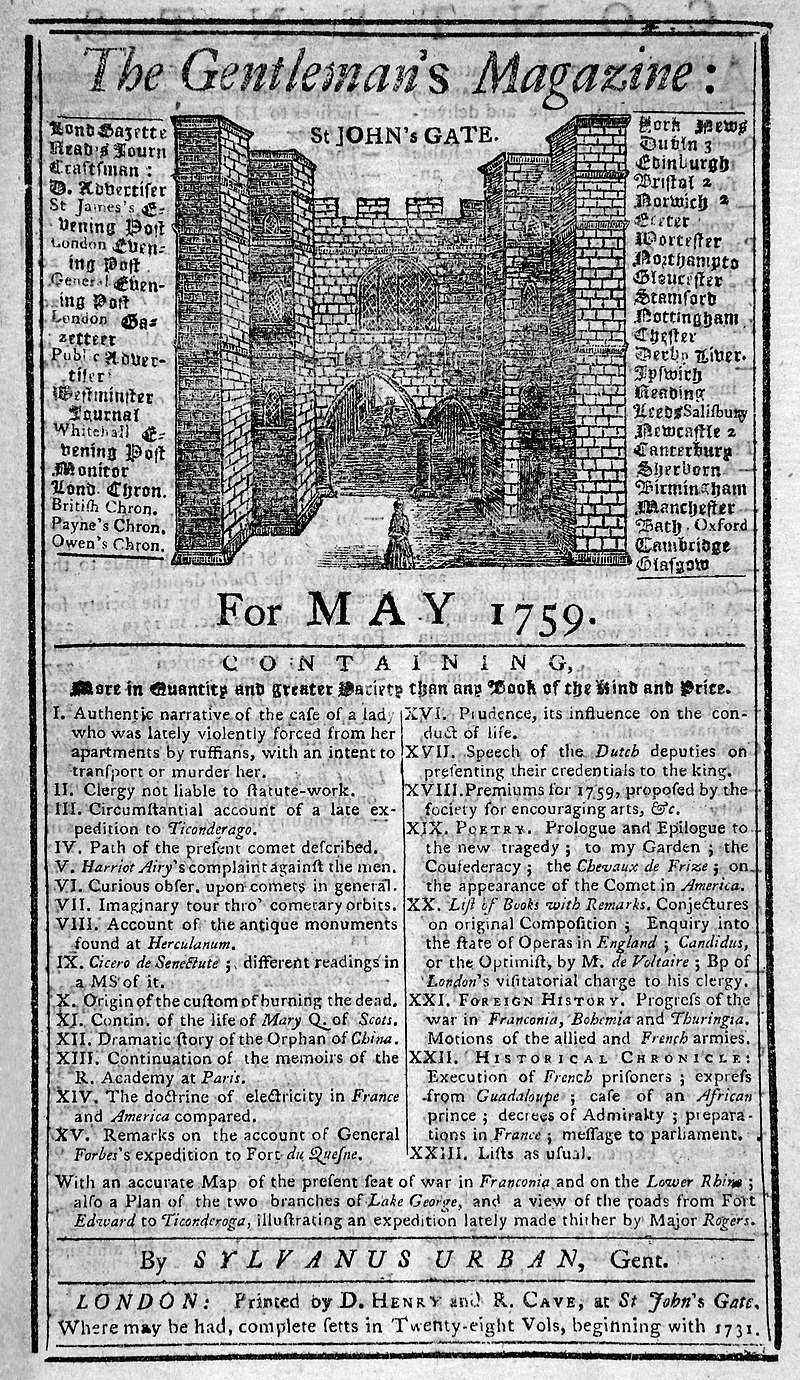
The Gentleman’s Magazine or Monthly Intelligencer as it was originally known, founded in London by the publisher Edward Cave in 1731, was intended to be a monthly compendium of the best news, essays and information gathered from the daily and weekly newspapers.[1] It was a great success from its inception, and by 1739 had achieved monthly sales of almost 10,000.[2] Cave himself was a frequent contributor, writing under the name of Sylvanus Urban,[3] and his close friend Dr Samuel Johnson18th-century English writer, critic, editor and lexicographer whose Dictionary of the English Language had far-reaching effects on the development of Modern English. also contributed regularly. By way of Johnson’s reports from Lilliput,[a]Lilliput is a fictional island nation invented by the satirist Jonathan Swift, which features in his Gulliver’s Travels (1726). the magazine succeeded in evading the official sanction on reporting the proceedings of parliament.[1]
The magazine, one of the first to use that word in its title,[b]The word magazine derives from the Middle French magasin, meaning a store or repository.[4] continued in production until 1914.[1] The image of St John’s Gate, Clerkenwell, the magazine’s original office and where it was printed, appeared on the title page of every issue.[5]
